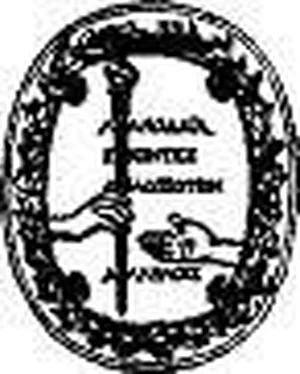Herbert Wells - Tales of Space and Time
Здесь есть возможность читать онлайн «Herbert Wells - Tales of Space and Time» весь текст электронной книги совершенно бесплатно (целиком полную версию без сокращений). В некоторых случаях можно слушать аудио, скачать через торрент в формате fb2 и присутствует краткое содержание. Жанр: Фантастика и фэнтези, на английском языке. Описание произведения, (предисловие) а так же отзывы посетителей доступны на портале библиотеки ЛибКат.
- Название:Tales of Space and Time
- Автор:
- Жанр:
- Год:неизвестен
- ISBN:нет данных
- Рейтинг книги:4 / 5. Голосов: 1
-
Избранное:Добавить в избранное
- Отзывы:
-
Ваша оценка:
- 80
- 1
- 2
- 3
- 4
- 5
Tales of Space and Time: краткое содержание, описание и аннотация
Предлагаем к чтению аннотацию, описание, краткое содержание или предисловие (зависит от того, что написал сам автор книги «Tales of Space and Time»). Если вы не нашли необходимую информацию о книге — напишите в комментариях, мы постараемся отыскать её.
Tales of Space and Time — читать онлайн бесплатно полную книгу (весь текст) целиком
Ниже представлен текст книги, разбитый по страницам. Система сохранения места последней прочитанной страницы, позволяет с удобством читать онлайн бесплатно книгу «Tales of Space and Time», без необходимости каждый раз заново искать на чём Вы остановились. Поставьте закладку, и сможете в любой момент перейти на страницу, на которой закончили чтение.
Интервал:
Закладка:
The swart man took the plunge. He grasped Denton's arm, became intimate in his attitude. "'Scuse me," he said. "Fact is, you done know 'ow to scrap. Done know 'ow to. Why—you done know 'ow to begin . You'll get killed if you don't mind. 'Ouldin' your 'ands— There! "
He reinforced his statement by objurgation, watching the effect of each oath with a wary eye.
"F'r instance. You're tall. Long arms. You get a longer reach than any one in the brasted vault. Gobblimey, but I thought I'd got a Tough on. 'Stead of which ... 'Scuse me. I wouldn't have 'it you if I'd known. It's like fighting sacks. 'Tisn' right. Y'r arms seemed 'ung on 'ooks. Reg'lar—'ung on 'ooks. There!"
Denton stared, and then surprised and hurt his battered chin by a sudden laugh. Bitter tears came into his eyes.
"Go on," he said.
The swart man reverted to his formula. He was good enough to say he liked the look of Denton, thought he had stood up "amazing plucky. On'y pluck ain't no good—ain't no brasted good—if you don't 'old your 'ands.
"Whad I was going to say was this," he said. "Lemme show you 'ow to scrap. Jest lemme. You're ig'nant, you ain't no class; but you might be a very decent scrapper—very decent. Shown. That's what I meant to say."
Denton hesitated. "But—" he said, "I can't give you anything—"
"That's the ge'man all over," said the swart man. "Who arst you to?"
"But your time?"
"If you don't get learnt scrapping you'll get killed,—don't you make no bones of that."
Denton thought. "I don't know," he said.
He looked at the face beside him, and all its native coarseness shouted at him. He felt a quick revulsion from his transient friendliness. It seemed to him incredible that it should be necessary for him to be indebted to such a creature.
"The chaps are always scrapping," said the swart man. "Always. And, of course—if one gets waxy and 'its you vital ..."
"By God!" cried Denton; "I wish one would."
"Of course, if you feel like that—"
"You don't understand."
"P'raps I don't," said the swart man; and lapsed into a fuming silence.
When he spoke again his voice was less friendly, and he prodded Denton by way of address. "Look see!" he said: "are you going to let me show you 'ow to scrap?"
"It's tremendously kind of you," said Denton; "but—"
There was a pause. The swart man rose and bent over Denton.
"Too much ge'man," he said—"eh? I got a red face.... By gosh! you are—you are a brasted fool!"
He turned away, and instantly Denton realised the truth of this remark.
The swart man descended with dignity to a cross way, and Denton, after a momentary impulse to pursuit, remained on the platform. For a time the things that had happened filled his mind. In one day his graceful system of resignation had been shattered beyond hope. Brute force, the final, the fundamental, had thrust its face through all his explanations and glosses and consolations and grinned enigmatically. Though he was hungry and tired, he did not go on directly to the Labour Hotel, where he would meet Elizabeth. He found he was beginning to think, he wanted very greatly to think; and so, wrapped in a monstrous cloud of meditation, he went the circuit of the city on his moving platform twice. You figure him, tearing through the glaring, thunder-voiced city at a pace of fifty miles an hour, the city upon the planet that spins along its chartless path through space many thousands of miles an hour, funking most terribly, and trying to understand why the heart and will in him should suffer and keep alive.
When at last he came to Elizabeth, she was white and anxious. He might have noted she was in trouble, had it not been for his own preoccupation. He feared most that she would desire to know every detail of his indignities, that she would be sympathetic or indignant. He saw her eyebrows rise at the sight of him.
"I've had rough handling," he said, and gasped. "It's too fresh—too hot. I don't want to talk about it." He sat down with an unavoidable air of sullenness.
She stared at him in astonishment, and as she read something of the significant hieroglyphic of his battered face, her lips whitened. Her hand—it was thinner now than in the days of their prosperity, and her first finger was a little altered by the metal punching she did—clenched convulsively. "This horrible world!" she said, and said no more.
In these latter days they had become a very silent couple; they said scarcely a word to each other that night, but each followed a private train of thought. In the small hours, as Elizabeth lay awake, Denton started up beside her suddenly—he had been lying as still as a dead man.
"I cannot stand it!" cried Denton. "I will not stand it!"
She saw him dimly, sitting up; saw his arm lunge as if in a furious blow at the enshrouding night. Then for a space he was still.
"It is too much—it is more than one can bear!"
She could say nothing. To her, also, it seemed that this was as far as one could go. She waited through a long stillness. She could see that Denton sat with his arms about his knees, his chin almost touching them.
Then he laughed.
"No," he said at last, "I'm going to stand it. That's the peculiar thing. There isn't a grain of suicide in us—not a grain. I suppose all the people with a turn that way have gone. We're going through with it—to the end."
Elizabeth thought grayly, and realised that this also was true.
"We're going through with it. To think of all who have gone through with it: all the generations—endless—endless. Little beasts that snapped and snarled, snapping and snarling, snapping and snarling, generation after generation."
His monotone, ended abruptly, resumed after a vast interval.
"There were ninety thousand years of stone age. A Denton somewhere in all those years. Apostolic succession. The grace of going through. Let me see! Ninety—nine hundred—three nines, twenty-seven— three thousand generations of men!—men more or less. And each fought, and was bruised, and shamed, and somehow held his own—going through with it—passing it on.... And thousands more to come perhaps—thousands!
"Passing it on. I wonder if they will thank us."
His voice assumed an argumentative note. "If one could find something definite ... If one could say, 'This is why—this is why it goes on....'"
He became still, and Elizabeth's eyes slowly separated him from the darkness until at last she could see how he sat with his head resting on his hand. A sense of the enormous remoteness of their minds came to her; that dim suggestion of another being seemed to her a figure of their mutual understanding. What could he be thinking now? What might he not say next? Another age seemed to elapse before he sighed and whispered: "No. I don't understand it. No!" Then a long interval, and he repeated this. But the second time it had the tone almost of a solution.
She became aware that he was preparing to lie down. She marked his movements, perceived with astonishment how he adjusted his pillow with a careful regard to comfort. He lay down with a sigh of contentment almost. His passion had passed. He lay still, and presently his breathing became regular and deep.
But Elizabeth remained with eyes wide open in the darkness, until the clamour of a bell and the sudden brilliance of the electric light warned them that the Labour Company had need of them for yet another day.
That day came a scuffle with the albino Whitey and the little ferret-faced man. Blunt, the swart artist in scrapping, having first let Denton grasp the bearing of his lesson, intervened, not without a certain quality of patronage. "Drop 'is 'air, Whitey, and let the man be," said his gross voice through a shower of indignities. "Can't you see 'e don't know 'ow to scrap?" And Denton, lying shamefully in the dust, realised that he must accept that course of instruction after all.
Читать дальшеИнтервал:
Закладка:
Похожие книги на «Tales of Space and Time»
Представляем Вашему вниманию похожие книги на «Tales of Space and Time» списком для выбора. Мы отобрали схожую по названию и смыслу литературу в надежде предоставить читателям больше вариантов отыскать новые, интересные, ещё непрочитанные произведения.
Обсуждение, отзывы о книге «Tales of Space and Time» и просто собственные мнения читателей. Оставьте ваши комментарии, напишите, что Вы думаете о произведении, его смысле или главных героях. Укажите что конкретно понравилось, а что нет, и почему Вы так считаете.





